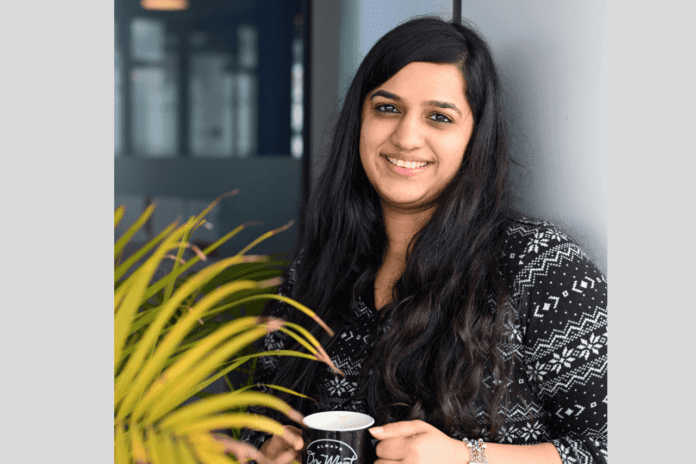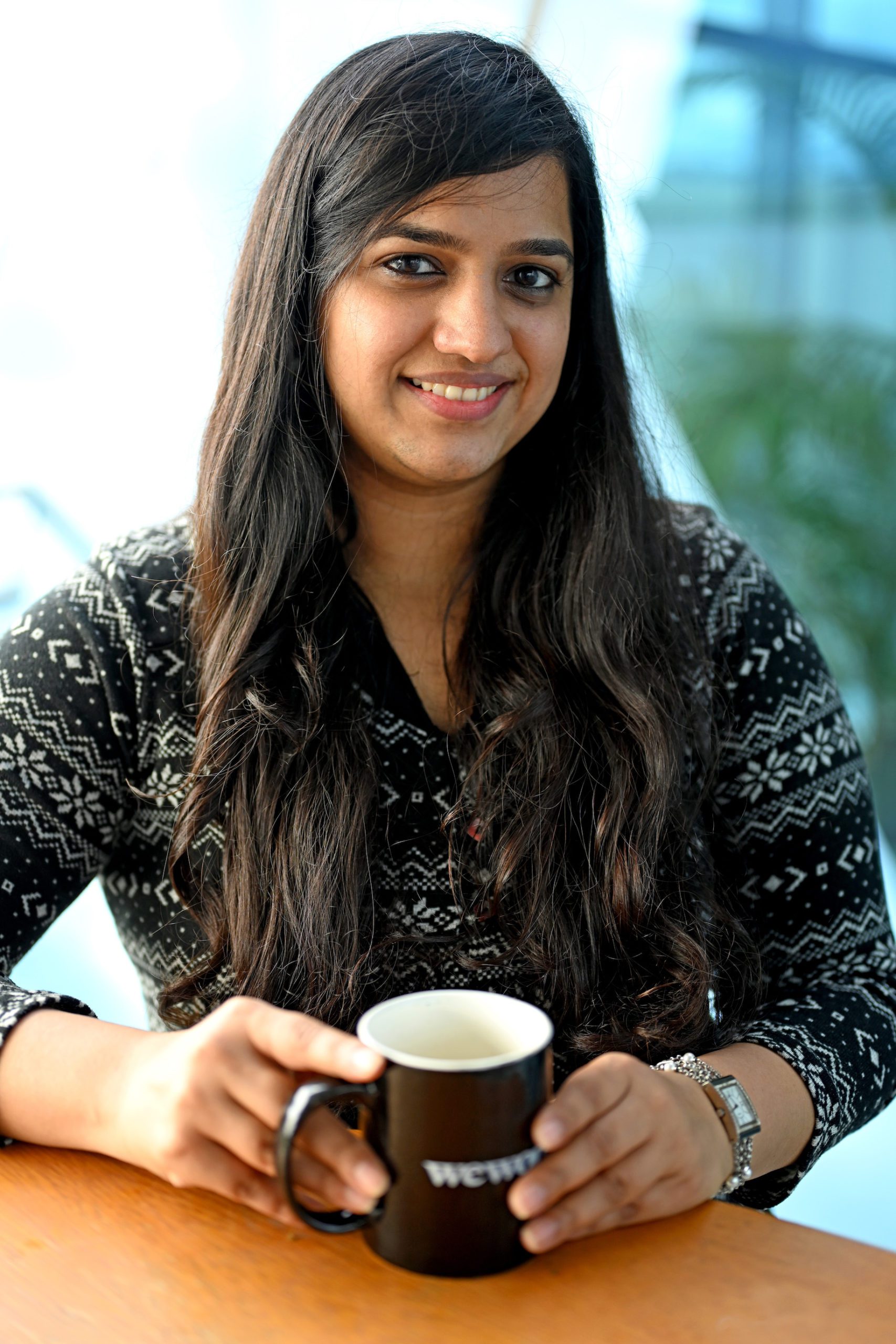As a part of the Morning Lazziness series about empowering women who are encouraging and doing incredible things with their ideas in society, I had the pleasure of interviewing Shruti Jaipuria.
Shruti is a fashion professional with 8+ years of experience in retail, manufacturing, and exports of textiles and RTW. Shruti is Deeply passionate about enabling creative individuals with business confidence and finding an equilibrium between passion and profession. Her interest in building an AI-backed fashion platform for independent designers and buyers alike, her other interests include reading, traveling, baking, and journaling.
Here’s what we found out about Shruti’s daily routine, followed by an exclusive Q+A.
When and how did it all begin?
Well, my entrepreneurial journey began back in 2012 when I decided to quit a coveted corporate job to find my purpose and passion in life. Back then it felt like the only option I had to make the great escape but cut to 2022 and who would have thought I’d be sitting here and talking about all the amazing opportunities I’ve had.
My family business had been into textile exports for the longest time and back then they were looking to go domestic and retail all their export surplus’ in a creative manner. I spearheaded that project and ran a shop on a shoestring budget to discover that I actually enjoyed the creative freedom I got and the high it gave me from interacting with shoppers and consumers on an everyday basis.
So before I chose fashion retail and management to be my career, I decided to major academically in it and equip myself with the theories and knowledge I could gather from an Ivy league Fashion Business School.
What sparked your interest in fashion?
To say that my career choice within the fashion industry is accidental would almost be blasphemy. However, that is true. I really do consider it to be a conscious accident. I didn’t voluntarily choose this field, although I grew up in a business, fabric and textile trading environment. I mostly believed that to be in fashion you not only need to be great at sketching and design but you also need to be fashionable. And for those who know me, you know I’m far from those qualities. However, over the years I learnt to be more comfortable in my skin and realized marketability within fashion also meant having a great eye for design and a knack to understand your consumers. Those really are the only skills I possess till date. So I honed them over the years and amalgamating design and business while being in fashion came a lot more naturally to me.
What challenges did you face at the start of your consultation business?
Plenty of challenges to say the least. The concept of consulting within fashion has always been associated with stylists and those who tell you how to dress and be a certain way. However, what I do is really tell you how to run your fashion business. From how much to produce to what to produce to when to produce. So it’s almost like picking up an alien concept first and then trying to get someone who doesn’t get the concept to buy into your service. Awareness of treating fashion businesses like any other serious business in the Indian market continues to remain a challenge for us. Design education comes at a price and because you are a designer, it should not take away from the fact that value creation and business modeling within the design are not something to worry about. In addition to that, of course, if you tell an artist your piece of art is great but lacks an audience, you are going to face resistance. Because design and creativity are forms of expression. It’s like me telling them to express more, less, change this, change that.
Is it tough for a woman to survive in this industry? How did you overcome those panic attacks?
Honestly, I think it’s tough for any gender to survive if they’re running a business of their own. I just think from where I come, running a full-fledged, mainstream business by a woman is taken a little less seriously since it’s not something the Indian society is used to. So with fewer examples of leaders and changemakers within your space, it’s probably harder because you’ve got to explain yourself a little more, be crisper and come with a lot more clarity to be taken seriously. As far as panic attacks are concerned, they happen often and I’ve learnt to talk about them in passing to my folks and friends, and family. Having a really strong support system around you that’s going to encourage you and keep you grounded always helps.
Coming to the main part- has the pandemic affected your business, and what have you learned from it?
The pandemic, in fact, helped me validate all the ideas I had running in my head about consulting and program building for these independent designers. I’ve been solving problems for them while marketing and representing them anyway, just building a bit more structure around that service, providing the branding it needed, and ensuring it’s a saleable experience is what I got the time to do during the pandemic. My biggest learning from the pandemic, especially on the professional front, was to live each day more fully. Until the pandemic, I was constantly executing without being aware on an everyday basis. The pandemic almost made me more self-aware and in turn, taught me to breathe while at work and relax a bit more.
If you were not a fashion consultant, what would you want to be?
Oh, man. This is a tough one. In the last couple of months, I’ve come to realize I do have a great many hidden talents I could explore. But if I were to pick one, I think I’d still continue to be an entrepreneur but maybe in the offline retail industry. A cafe owner or a multi-brand conceptual fashion store owner. It will allow me to do all the things I deeply love doing which is marketing, selling, and interacting with people. So yeah, one of those.
Share your best 5 tips that you give to every fashion brand, and why?
- If you cannot summarize your why in a few words or in 1 line it’s probably not good enough
- Design is everything emotional. If it doesn’t evoke feelings, it’s harder to market
- In order to be heard, you need to first make a list of all the things you intend to say repeatedly.
- I cannot stress enough how important it is to have structure and clarity of thought. Half the battle is won if you know what you want to do and what you have in place to get it all done.
- And finally, having a long-term mindset is probably the biggest investment you’ll make in yourself and your business. Growth comes from focusing on the bigger picture and not everyday numbers
What makes you different from other Fashion Consultant Agencies
Well we’re known not to sugarcoat our solutions, ideas or even our feedback. Working with us will ensure our clients have complete knowledge and transparency of our intentions and actions. To us, that is incredibly important.
What are the “myths” that you would like to dispel about being a founder? Can you explain what you mean?
I think the biggest myth everyone has about you being a founder is that you have it all sorted and that you have all the answers all at once. Personally, I think that’s crap. You probably know why, you know what you need to do, but the execution is the hardest thing ever and most founders only have a plan, to begin with. The actual details of the plan, the resources, and most importantly the results or impact from that plan are always blurry. So an answer like ‘I don’t know fully’ or ‘I’m not exactly sure yet’ should be acceptable within your community.
What is the biggest sacrifice you’ve made in starting or running your fashion consultant business?
Sacrifice? Well, I think I chose the courageous path of not making tons of money quickly and instead chose fulfillment. I chose purpose over profitability and I chose hard work over fast work.
What’s one quote you live by?
‘Live life in warm yellows’: It’s got everything you need in it. Sunshine, peace, optimism, spontaneity, purpose, risk, alertness, glory, and even a song by Coldplay. Lol
Lastly, what do you think this world needs the most?
Accountability. I truly believe change comes from taking responsibility and ownership first. Accountability for your actions, intentions, thoughts, and decisions. The world needs more willingness to be responsible



